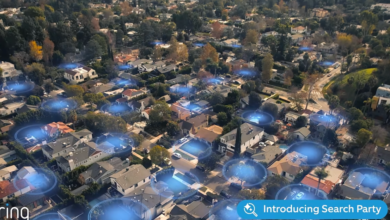OpenAI’s Bias Problem & The Making of AI Videos

▼ Summary
– Taiwan has rejected a US request to relocate 50% of its chip production to the United States.
– A labor market study found little evidence that chatbots are eliminating human jobs.
– OpenAI released a new Sora video app, continuing efforts to make AI a social experience.
– Scientists created embryos from human skin cells for the first time, potentially aiding infertility and same-sex couples.
– Elon Musk announced plans to build a rival to Wikipedia, raising questions about its accuracy and impartiality.
Navigating the complex world of artificial intelligence, OpenAI’s new Sora video application highlights both the promise and the perils of generative media. This tool represents the latest push to weave AI into social experiences, yet it arrives amid ongoing debates about content ownership. Copyright holders must proactively request the removal of their intellectual property from the platform, placing the burden of enforcement on creators rather than the technology itself.
In global tech and trade, Taiwan has firmly rejected a U.S. request to relocate half of its semiconductor manufacturing to American soil. Officials stated that no such commitment was ever made, raising questions about the durability of the island’s so-called “silicon shield” and its strategic role in the global chip supply chain.
Contrary to widespread anxiety, recent labor market analysis reveals scant evidence that AI chatbots are causing widespread job displacement. Historical parallels suggest that while automation transforms certain roles, it often generates new opportunities, tempering fears of an employment apocalypse.
A groundbreaking development in reproductive science sees researchers creating viable embryos from human skin cells for the first time. This technique could offer new pathways to parenthood for individuals facing infertility and for same-sex couples, while robotics continue to introduce innovative approaches within fertility treatments.
Elon Musk has announced plans to develop a competitor to Wikipedia, though details regarding its editorial policies and accuracy remain unclear. Separately, research indicates that the interplay between AI systems and crowd-sourced platforms may be accelerating the decline of vulnerable languages worldwide.
The ambitious effort to revitalize America’s semiconductor industry has encountered significant disruption following the withdrawal of critical funding from a multi-billion dollar initiative. This setback injects uncertainty into plans for domestic chip manufacturing expansion.
Immigration and Customs Enforcement (ICE) is seeking to acquire a tool for tracking mobile phone locations, despite lacking judicial warrants for its use, stirring concerns over privacy and legal oversight.
The electric vehicle sector faces considerable hurdles in scaling up production, with solid-state batteries often hailed as the ultimate solution. However, the feasibility of their full commercialization remains an open question, compounded by analysis suggesting that larger EVs do not necessarily translate to better environmental or practical outcomes.
(Source: Technology Review)
